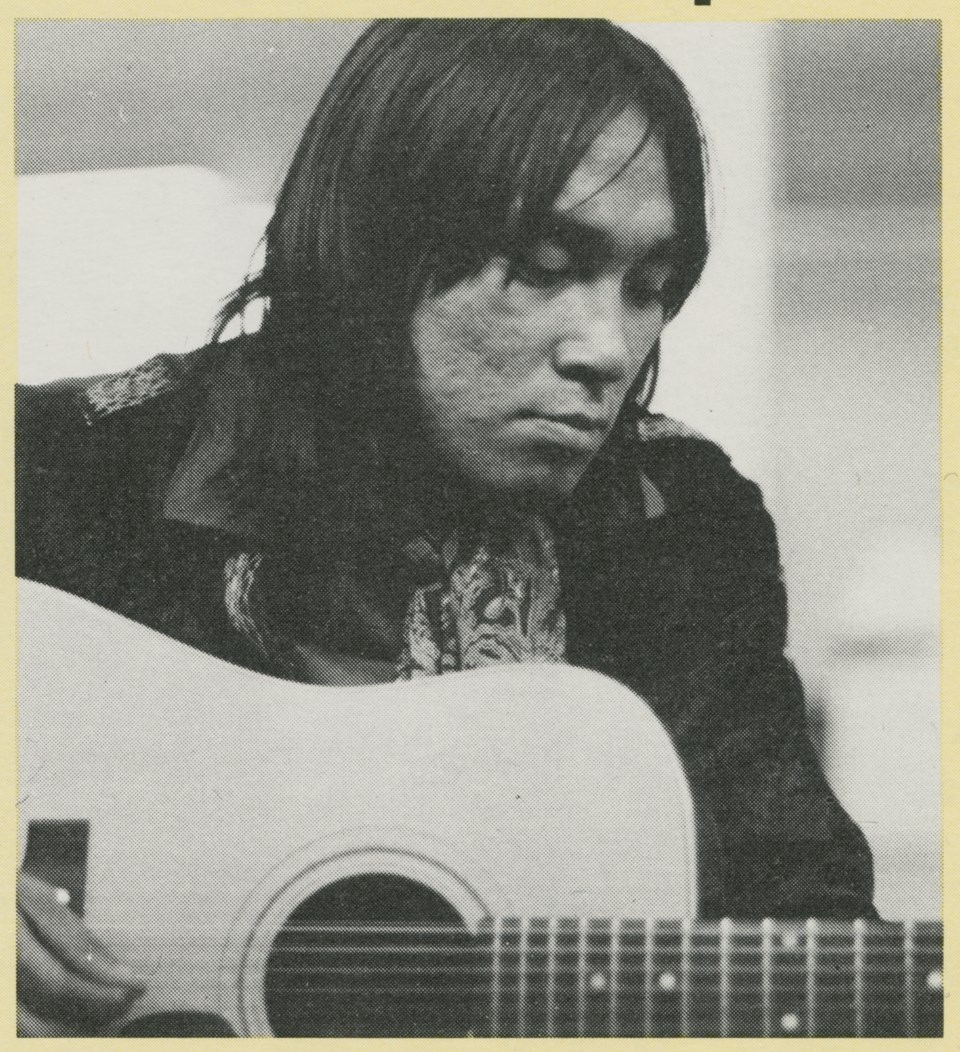"This is the most historic time in aboriginal music history.” - Willie Thrasher
It is the 1960s. A young Inuit rock band by the name of The Cordells are playing a hall in the Northwest Territories. All covers. They are good – really good. When they finish their set and finally sit down, an old white man approaches them and tells them something that will change the life of drummer Willie Thrasher forever: “Why don’t you write Inuit music? Why don’t you write about your culture: About hunting, trapping, your language, your ancestors, your medicine people, the polar bear, the caribou, the eagles, the seals, the northern lights, the legends from the past that have been passed on to you,” the old man said.
Willie listened. “That was the first time in my life when I knew who I really was”.
The Cordells broke up shortly after, but Thrasher went on to become a prolific solo artist, and is one of many artists to be featured on the latest Light In The Attic/Kevin “Sipreano” Howes collaboration Native North America (Vol 1), Aboriginal Folk, Rock and Country 1966 - 1985. With the release of this compilation, the public will finally have access to songs once lost in the dusts of time and small town thrift stores.
I reached Thrasher by phone at his home in Nanaimo: “[We were] caught in the peace movement, rock 'n' roll, and the aboriginal music scene.” he says. “It was one of the most precious time of our lives. We had long hair, we were wild, we were young, and we did everything we could to pass a message.
"Kevin Howes brought all that back with love, understanding, and now its time for the world to hear it again.”
Howes is a renowned Vancouver-based musicologist, DJ, and musical curator whose relationship with Light In The Attic – a Seattle based label largely known for their excellent reissues catalogue – has lasted for well over a decade.
“I love Gordon Lightfoot, and I love Leonard Cohen, but for every artist like that, there’s a dozen who never got their chance to shine who are equally valid and important” says Howes of the compilation. “I’ve made it one of my life’s passions to research this content and to share it instead of just hoarding it in some weird record-collector capacity.”
When I speak with Kevin on a crisp East Vancouver day, his warmth, love, and respect for the music is apparent. “I view all the music on this as very spiritual – even the stuff thats more folk, rock and country. [After] you talk to the artist and hear their beliefs and their values… it comes from a very deep place.”
Howes spent 15 years of his life sourcing out the music featured on this compilation, driving across the country to record swaps, private libraries, personal collections, and the CBC archives. “I’d find a record by Sugluk [an Inuit rock band from Salluit], listen to it, and just be floored. I can’t believe music like that was being made in Canada in those days.” says Howes, “You look online, you look in books, and you can’t find a damn thing about Sugluk. Who are these people that made this music? So I put my Sherlock Holmes hat on and started trying to find the artist and reaching out to them.”
In addition to Sugluk’s classic rock, You will hear echoes of protest-folk (Willie Dunn’s “I Pity The Country), rock 'n' roll ("Siwash Rock" by Gordon Dick contains more swagger than Mick Jagger’s hips), traditional Aboriginal music and poetry ("Silver River" by Shingoose, featuring the poetry of Duke Redbird) and lyrical content ranging from reserve life, to love, to traditional storytelling. “Sometimes when people from back home would tell me a legend story, the only way I could remember was to write a song about it.” says Thrasher. “I only had grade six, because I was raised in a residential school and I wasn’t that well-educated, because I wasn’t suppose to be educated. Music, drumming, singing, and dancing kept me going all these years. And to this day I’m still going strong with music, I still travel, and I admire very much what Kevin did. This is the most historic time in aboriginal music history.”
This couldn't be a more true; with the rise of Tanya Tagaq, a Tribe Called Red, and many more, it has been an incredible year for Aboriginal music in Canada. And this is just the start. Willie Thrasher is currently recording a new album which he will release sometime next year, and Howes is already working on Volume 2 and beyond.
"My Canada is made up of all the people that helped to shape this country in a positive way. The people who create an incredible culture, like these artists. That’s who we should be celebrating. [These artists] should be celebrated for the cultural heroes that they are."


